Who is winning the Gaza war?
More than eleven weeks have passed since the Palestinian Hamas resistance movement launched an unprecedented full-blown attack on Israel in an operation named the "Al-Aqsa Storm".
In the October 7th attack, Hamas and fellow resistance fighters humiliated Israel's so called invincible military and spy services by infiltrating the occupied territories via land, sea and air, killing hundreds of Israelis and taking many others as captives.
This operation was a response to decades of Israeli occupation, oppression of Palestinians, and the desecration of the Al-Aqsa Mosque.
Outraged by the severe military and intelligence blow the regime suffered, Israeli leaders pledged to wipe out Hamas as the ultimate objective for the war they quickly waged on Gaza, home to some 2.2 million people.
To date the regime has killed well over 21,000 Gazans, mainly minors and women, and leveled much of the territory with bombs.
Many observers, however, believe that despite what appears to be the superiority of Israel's Western-backed military against the Palestinian resistance, the latter seems to have the upper hand when it comes to the war as a whole and would probably emerge as the ultimate winner.
For over two months, Israel has been conducting a horrifying assault against civilians in Gaza, using the most advanced fighter jets and bombs, including internationally banned munitions, many of which have been acquired from the west.
The regime has been targeting residential buildings, hospitals, schools, and even UN aid facilities, massacring Gazans including thousands of children, even newborn babies, but victory cannot be established from the air.
The situation is different on the ground. Israeli forces remain bogged down in the vicinity of Gaza, as Hamas keeps inflicting more and more losses on them on the battlefield.
In terms of tactics, the Palestinian resistance fighters are known to be running a kind of a ghost army against Israel. In fact, they have no military barracks, no air bases, no radar systems, no electronic surveillance installations, no naval installations, and no railway network for Israel to target.
But the resistance fighters have not stood idly by under the siege. Instead, they have developed a sophisticated network of underground tunnels, facilitating their movement and transfer of arms across the Gaza Strip, free from Israeli surveillance, besides storing a good number of rockets and missiles produced at home.
Various videos of the clashes show Palestinian fighters coming out of nowhere, targeting the Israeli military, destroying their tanks, and then just vanishing into thin air.
Even though the rockets and missiles that Hamas pours on Israel are homemade projectiles that use no radar systems to accurately reach their target, many of the same projectiles have successfully penetrated the much publicized Iron Dome system and hit deep inside the occupied territories and reaching as far as Tel Aviv.
In general, Hamas and other Palestinian resistance factions have successfully been using guerrilla warfare tactics to resist the brutal Israeli occupation, which is actually the main reason behind their creation.
On the other hand, Hamas and other resistance groups in Gaza are not the one and only headache for the Israeli regime. Israel faces a host of threats from all around the occupied territories.
From the north, the powerful Hezbollah resistance group, which is considered to be Lebanon's de facto army, has been aiding Hamas as part of its support for the Palestinian cause against occupation.
It has been engaging in a tactic that the leader of Hezbollah, Seyyed Hassan Nasrallah, says is aimed at keeping Israel busy on the northern front and preventing the regime from staying focused on Gaza. Many of the settler units near the Lebanese border have already been evacuated.
Meanwhile, the Israeli military is forced to simultaneously keep an eye on the Palestinian refugee camps in the West Bank, as well. The regime routinely, on a daily basis, sends out forces to Palestinian neighborhoods to suppress all struggles and protests against the occupation and bloodshed in Gaza.
Israel's main supporter and ally, the United States of America, has also been in trouble due to its staunch support for Tel Aviv's ethnic cleansing campaign in Gaza.
Over the past few weeks, there has been a sharp rise in raids on American military bases in Iraq and Syria by fighters who sympathize with the Palestinian cause, in response to which there have been increasing calls in Washington for the White House to protect US interests by stopping Israel.
From the economic standpoint Israel has also been paying a huge cost for the war. It has been estimated that the fiscal deficit for Israel in 2023 is going to be 3.7%, up from the earlier estimates of 1.1%.
Recently, the regime estimated the initial cost of the ongoing Gaza war at around 191 billion shekels, which amounts to $51 billion, up from an earlier estimation of nearly 163 billion shekels, which amounts to $44 billion.
Furthermore, Israel Central Bureau of Statistics earlier estimated that around 750,000 Israelis were absent from the workforce due to the Gaza conflict, a figure that represents nearly 80% of its workforce. This is while the regime's finance officials had already said the tax revenues were falling even before the outbreak of the Gaza war in October.
What is irking the Israeli regime even more is the popular protests inside the occupied territories and all over the world.
In the last few weeks large crowds of demonstrators have been rallying in a show of solidarity with Palestine in cities across Europe, the Middle East, the United States and Asia to condemn the Israeli onslaught against Gaza.
Growing anti-Israel sentiment worldwide has doubled the pressure on the regime. The regime is not even at peace with its own settlers.
Amid the war, many Israelis have been holding large gatherings and demonstrations in Tel Aviv, and elsewhere, against the policies of the hawkish administration of prime minister Netanyahu and calling on him to step down.
Netanyahu is widely blamed by the Israeli public for the security threats the regime is currently facing. He is also criticized for "his poor performance in dealing with the case of the Israelis in the custody of Hamas".
Another factor that has caught Israel completely off guard is the Houthi Ansarullah resistance movement in Yemen, which has openly declared war on the occupying regime.
Observers were initially skeptical of the Yemenis' capacity for harming Israel until they seized an Israeli-owned commercial vessel in the strategic Bab al-Mandab Strait.
What has been the reaction of the invincible Israeli military to the seizure? Nothing so far.
Yemen's brave move has forced Israeli ships to change maritime routes and pay higher transit fees.
It is now clear why the Israeli military is still struggling, seemingly lost on the battlefield against the Palestinian resistance.
The leader of the Islamic Revolution Ayatollah Seyyed Ali Khamenei has stated that the ultimate victory will, without a doubt, be for Palestine.
And that statement seems to align with what many political analysts are saying today about the future of the Palestinian fight against occupation in the wake of Al-Aqsa Storm.
'Powerful strike': IRGC hits US destroyer with ballistic, strategic cruise missiles in Indian Ocean
IRGC: 16th wave of retaliation hit heart of occupied territories; enemy casualties stand at 680
We avenge the innocent until our last breath: Iran's parl. speaker
170 students, teachers martyred in ‘deliberate’ strikes on Iranian schools: Minister
Iran’s air defense systems down six advanced Hermes drones
US defenses overwhelmed by Iran’s drone and missile barrages: WSJ
IRGC says second US THAAD anti-missile unit destroyed
CNN journalists abducted by Israel while reporting on damage from Iranian strikes


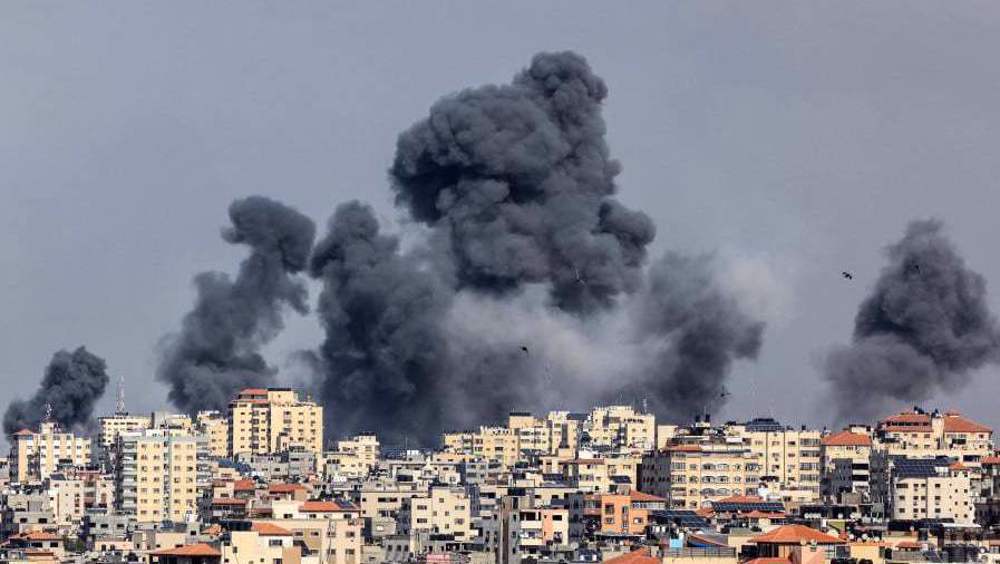
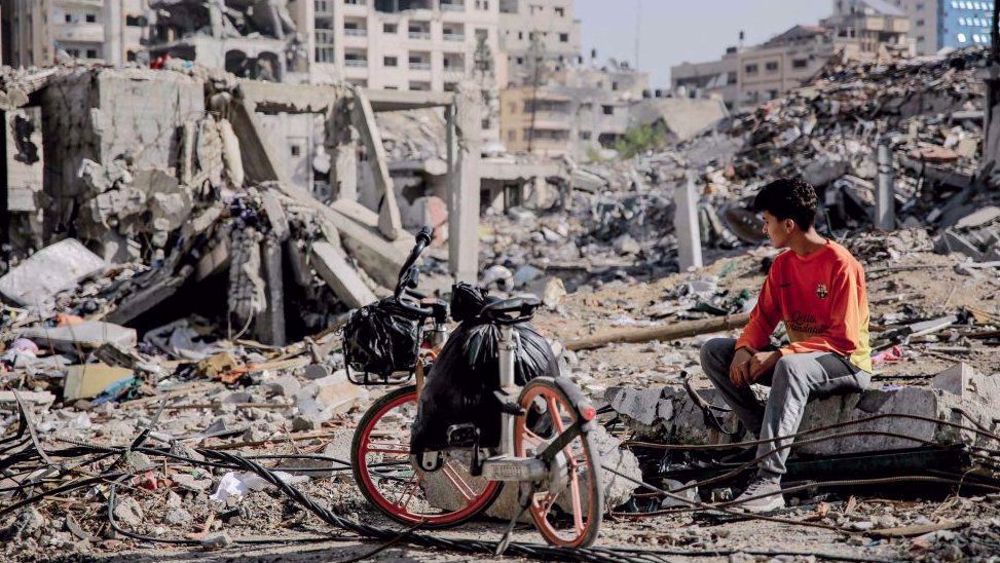
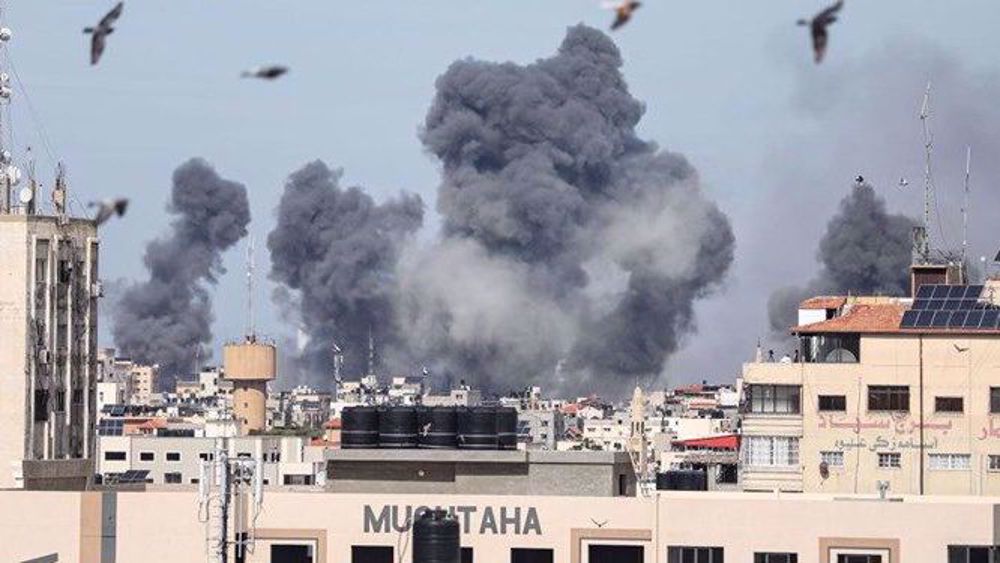
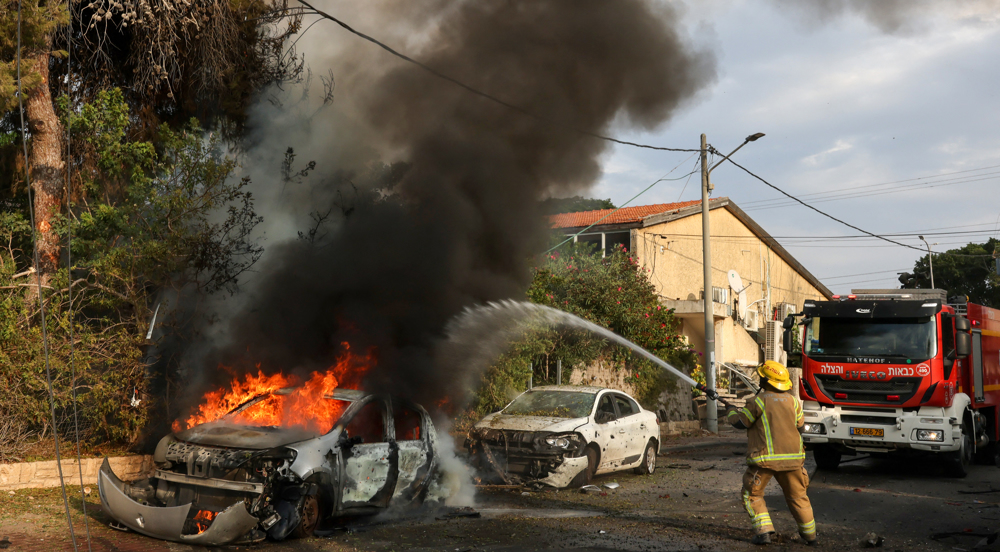

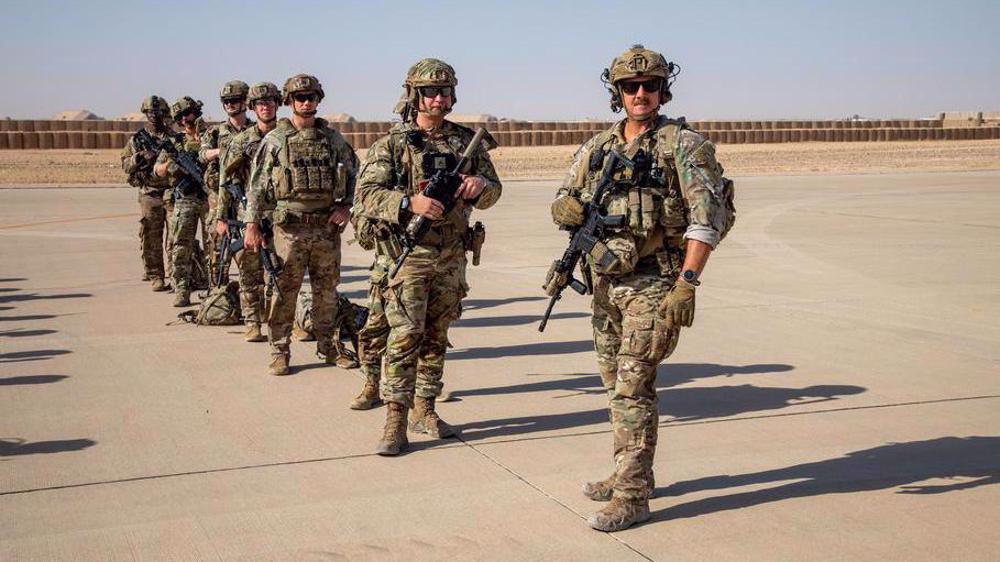
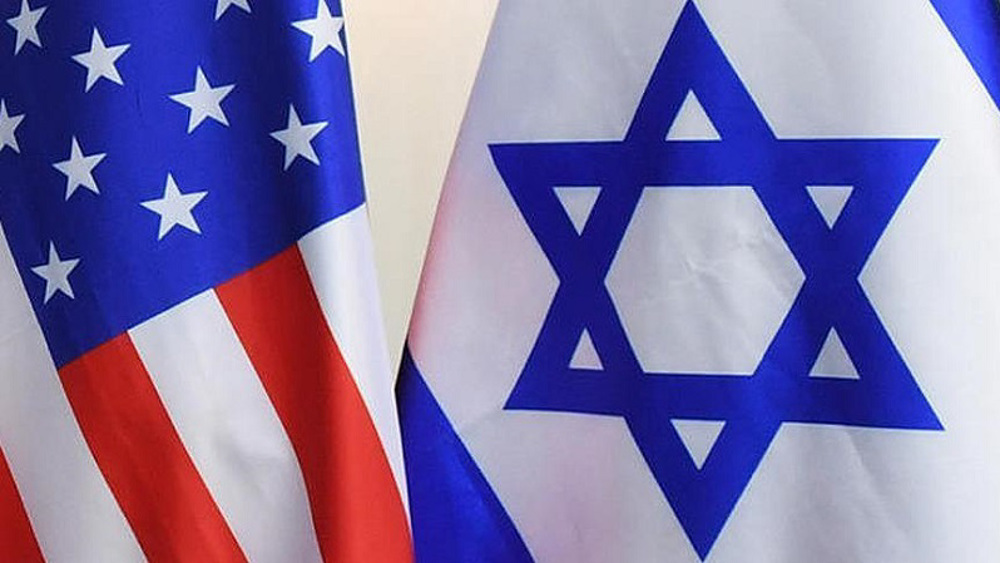
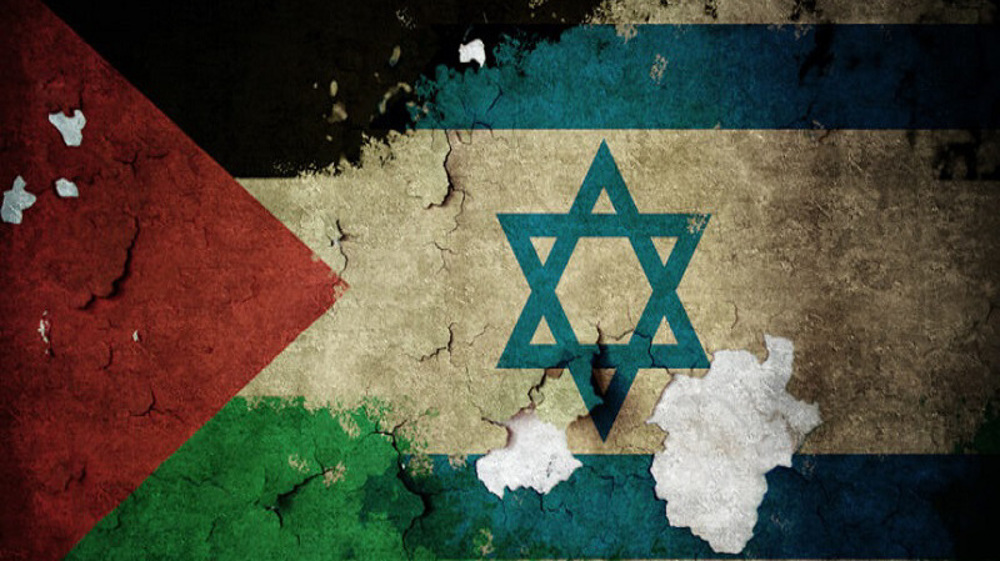
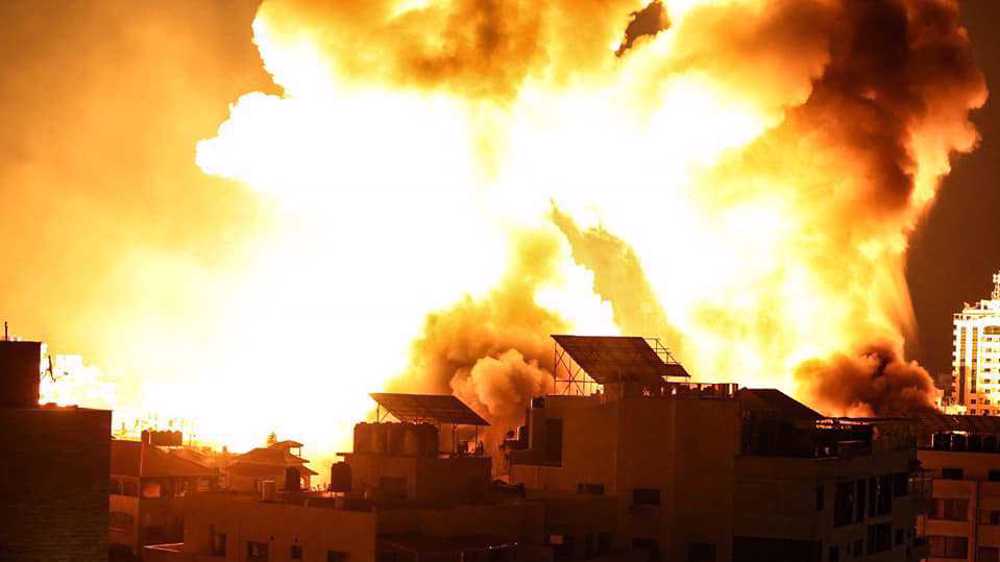
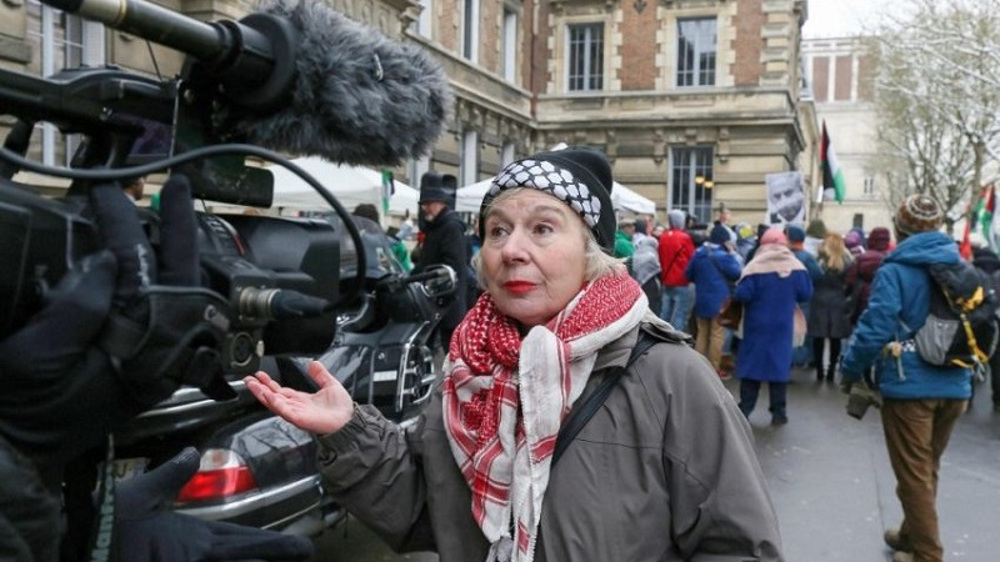





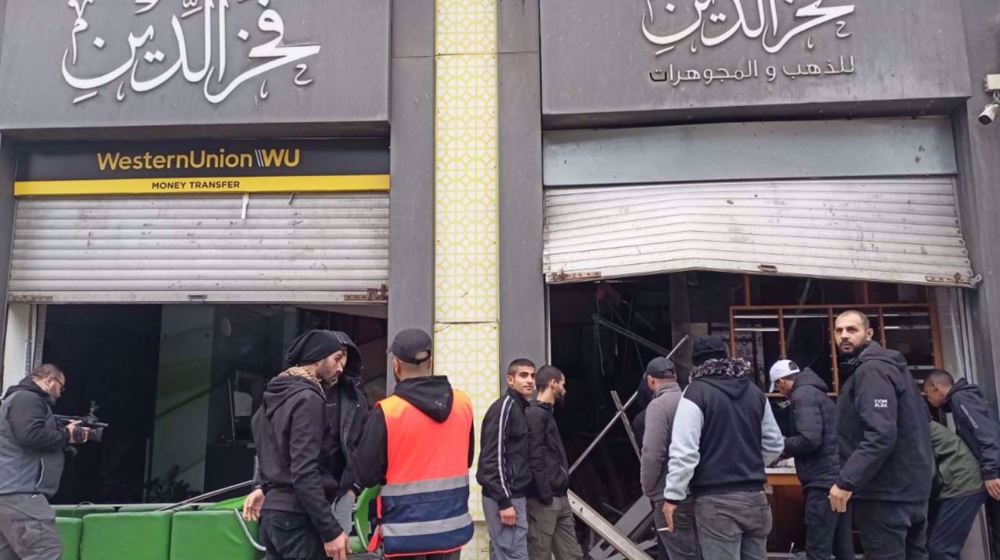
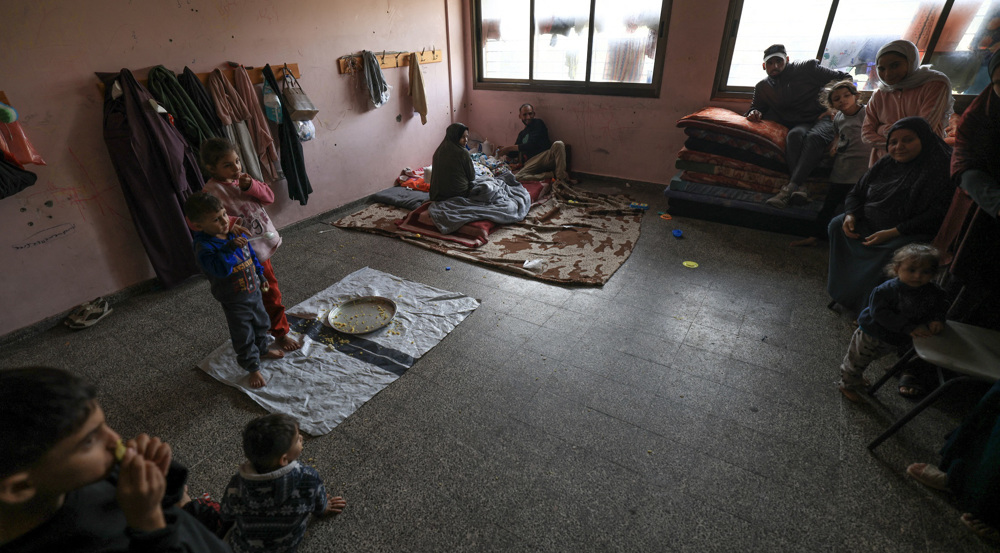
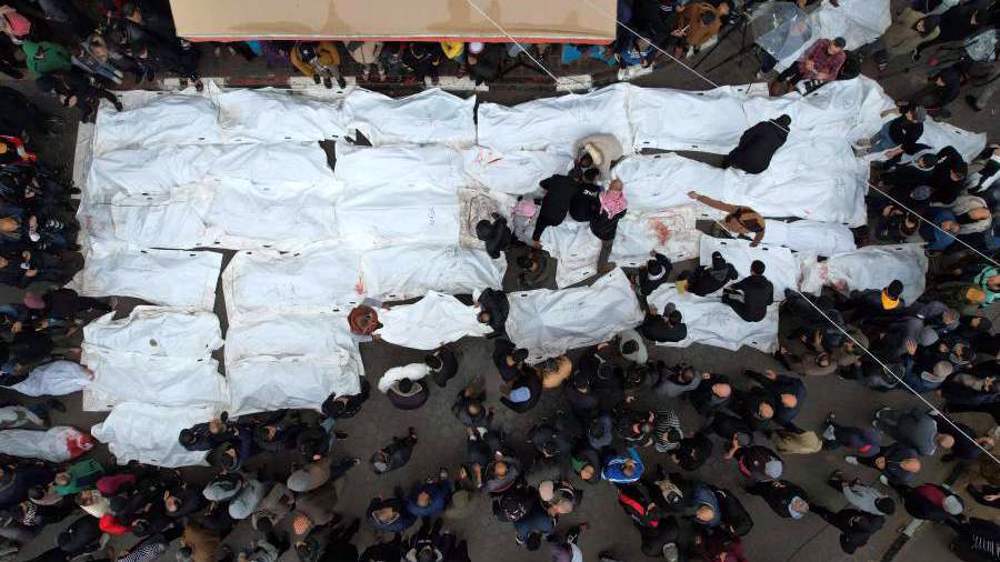
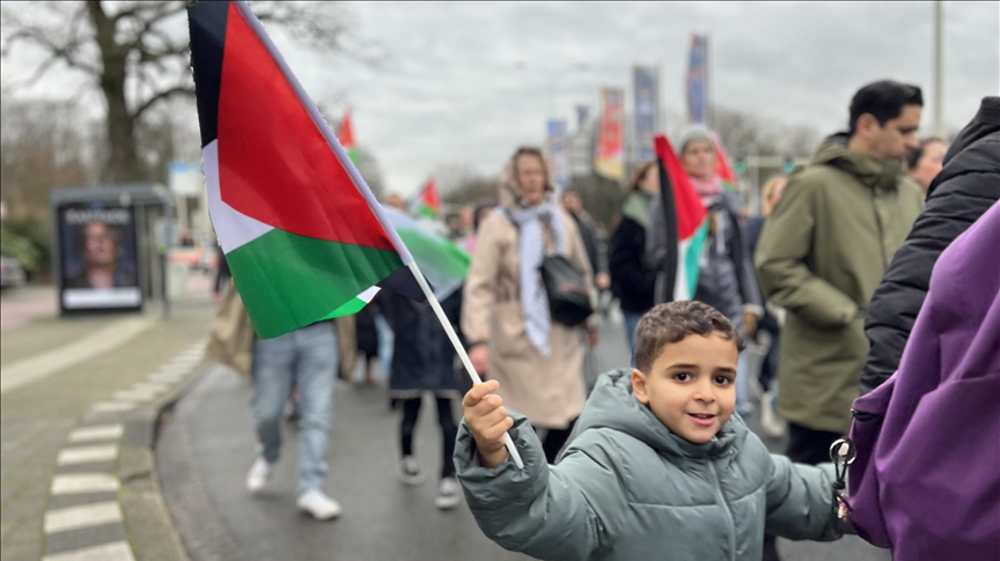
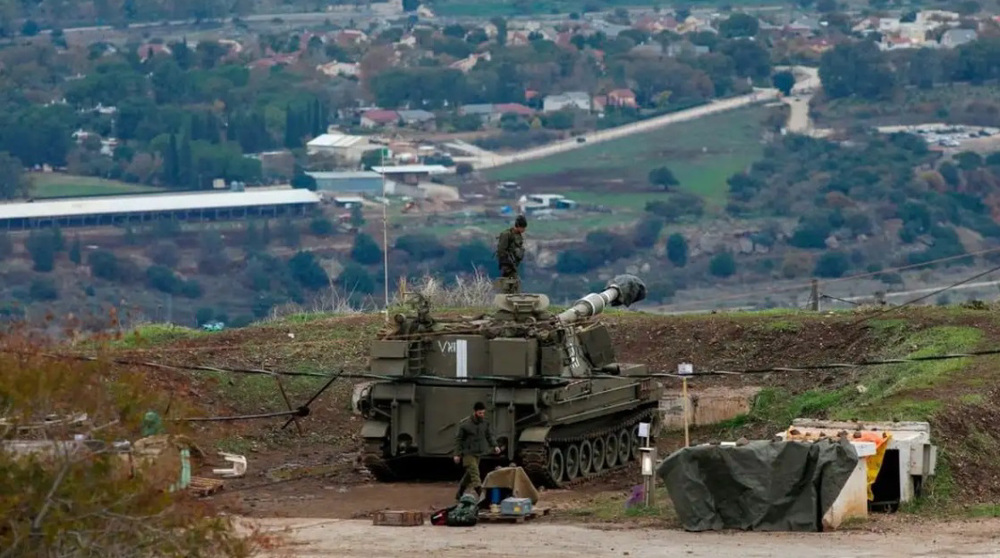
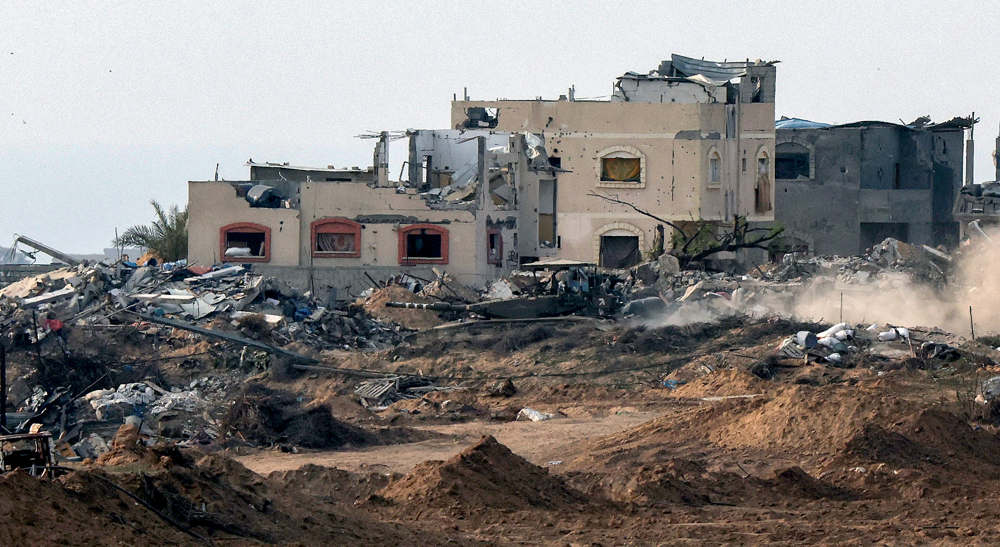
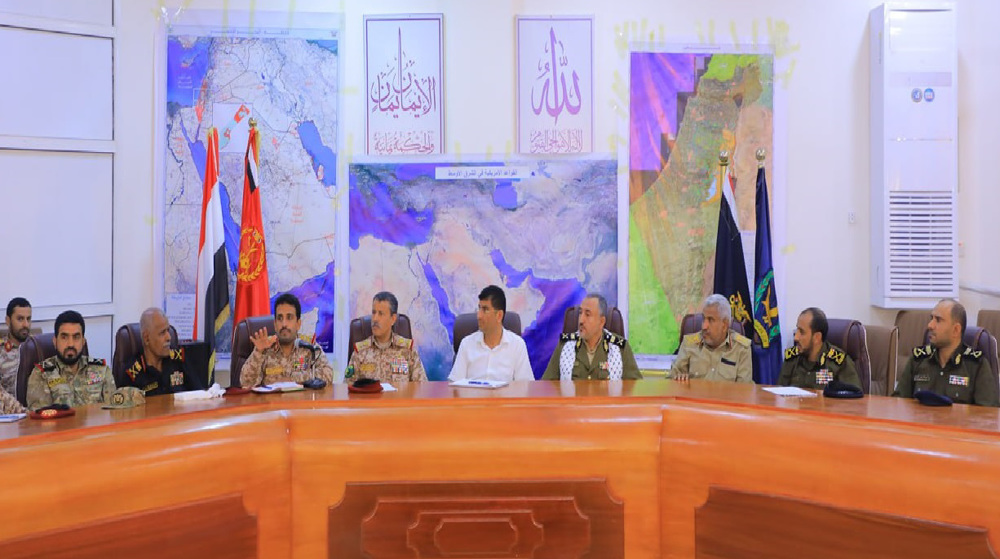
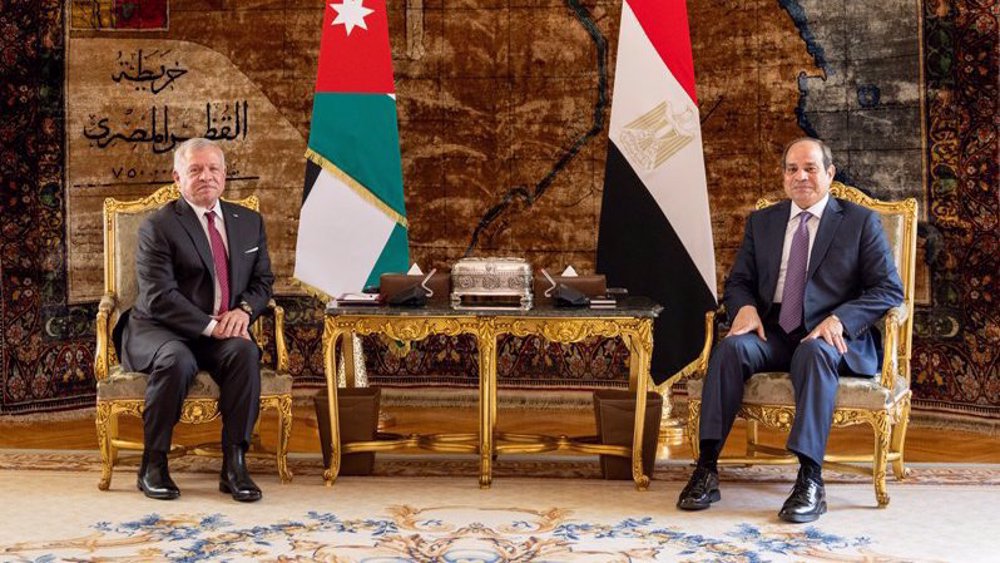
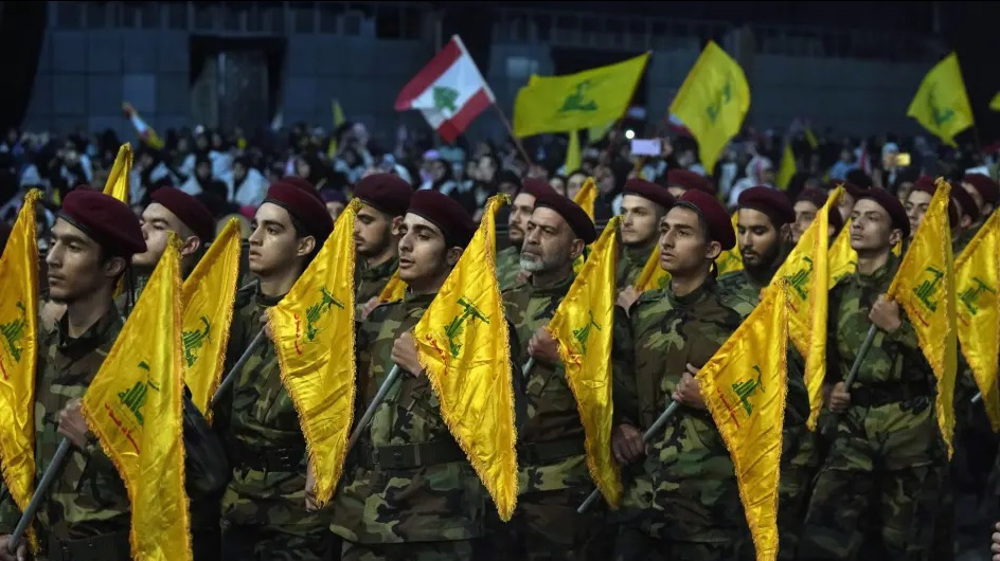
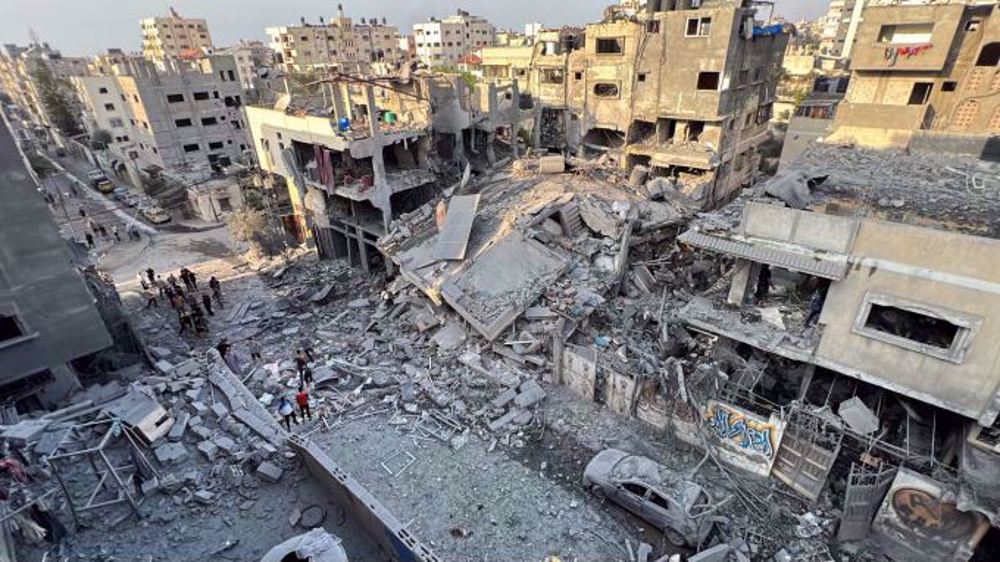

 This makes it easy to access the Press TV website
This makes it easy to access the Press TV website